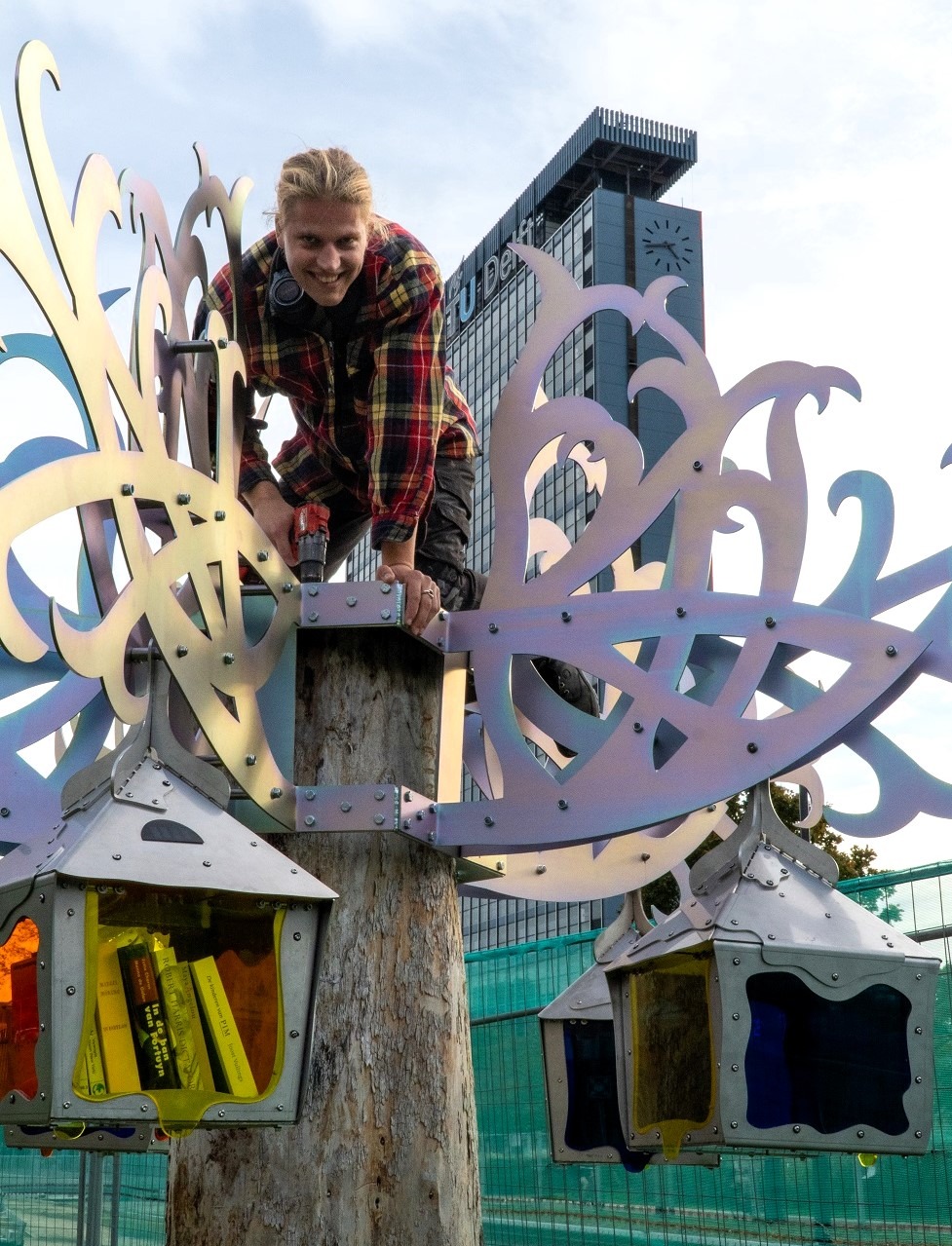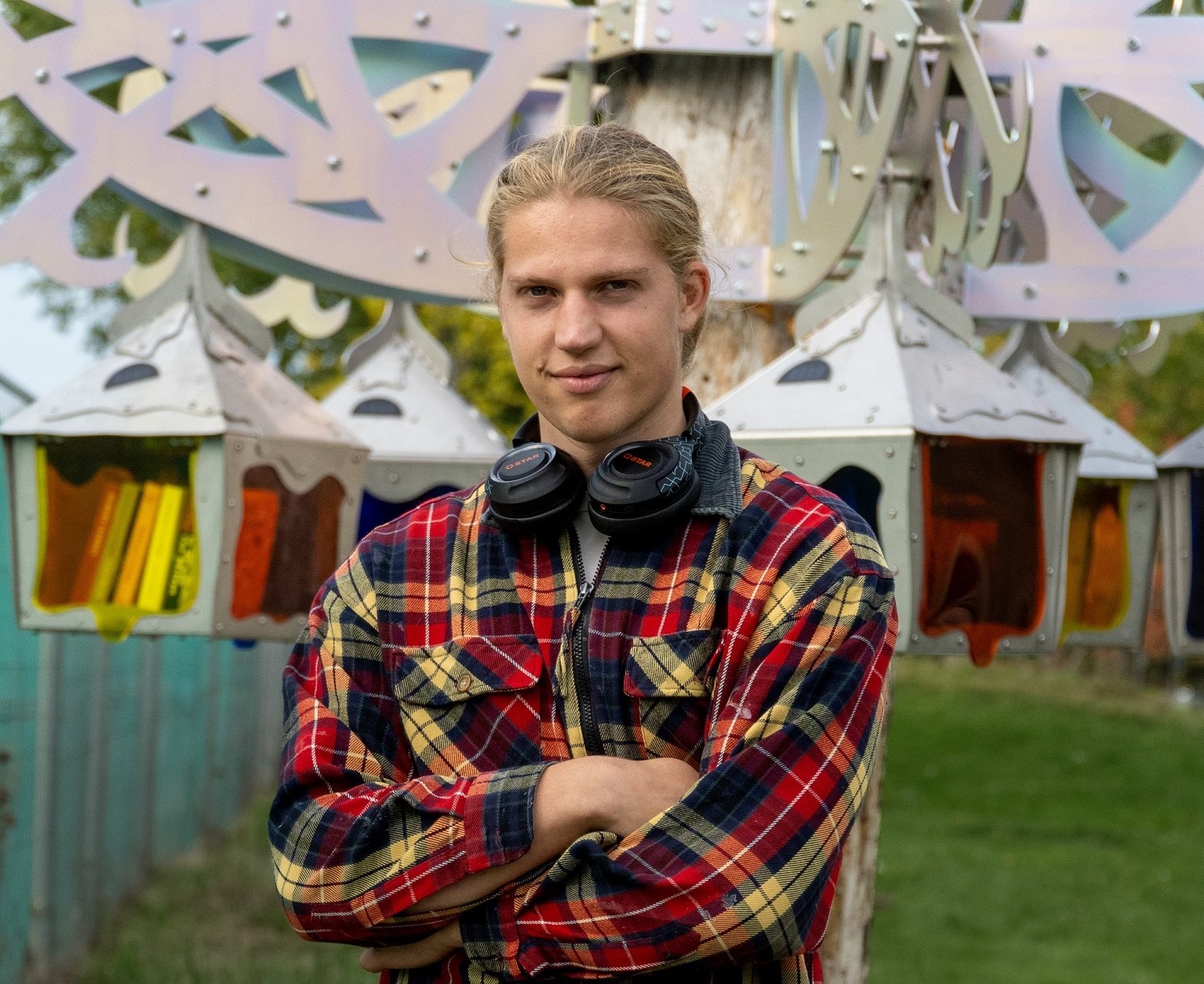Three years after winning a design competition for the Free Library on campus, TU Delft student Romeo Veldhuis (Industrial Design Engineering) has seen his vision become a reality. The ‘Biebboom’ (library tree), which was inspired by a tree with books as fruit, is now on campus.
TU Delft student Romeo Veldhuis designed the new mini-library on campus. (Photo: Carlo Faulquier / Instagram: @captured_carlo)
You won a design competition for the Biebboom, a piece of art on campus that serves as a Little Free Library, three years ago. Why did you enter the competition?
“It was during Covid and I was looking for something useful to do with my time. When someone told me about the competition, I only had one week to submit an entry. I sat in a classroom where I gave remedial classes to secondary school pupils and sketched a very simple draft on paper. The selection committee thought my idea was original and powerful, despite my entry not really being fully worked out.”
How did you get the idea for the design?
“I drew inspiration from trees as symbols of growth and knowledge. I imagined picking books as ‘fruit’ from trees. The idea for the design grew from there. The draft has been much adapted in the process. At first I wanted to work with wooden branches, but in the end we opted for metal for reasons of durability. We also changed the houses hanging from the branches from simple ‘bird houses’ to organic shapes that look more like fruit. It was a process of continuous adjustment and improvement.”

How did you balance functionality and aesthetics in your design?
“Through a lot of experimentation. In the first phase I tried out several designs in SolidWorks and played around with colours and shapes. I gave every house a different colour, but that was too busy. In the end I found a balance by using a couple of colours. This gives the Biebboom a lively yet cohesive appearance. It was mostly about trying things and evaluating them until I was satisfied. I had help and coaching from Arjan Witteveen, a multidisciplinary designer.”
It took three years to finish the project. Why did it take so long?
“It was mostly because I wanted to do as much as possible myself. On top of that, there were a lot of technical challenges. For example, it turned out that it was not possible to solder all the metal components so I had to go in search of other options. In the end, I used bolts in a sort of Meccano style. It was good but labour intensive as you need to screw every single one of them individually. The branches also needed to be weather-proof for extreme conditions, so with the help of Professor Matthijs Langelaar (Mechanical Engineering), I did some wind calculations. The design is so strong that it can survive a hurricane.”
How did you test this?
“For safety reasons, the construction must be strong and vandalism-proof. I did calculations for the wind conditions and chose the materials for their durability. The tree branches are five millimetre thick metal, which may be heavily over-engineered. And the books are protected from rain and wind by magnets that close automatically. I tested them in the shower at home to see if they really were waterproof. I stood there in my swimming trunks to see if any water was seeping in anywhere.”
The Little Free Library in the Mekelpark (next to the faculties of Electrical Engineering, Mathematics and Computer Science and Applied Sciences) is a TU Delft Library initiative and was designed by Integrated Product Design master’s student Romeo Veldhuis.
Do you have a question or comment about this article?
m.vanderveldt@tudelft.nl


Comments are closed.